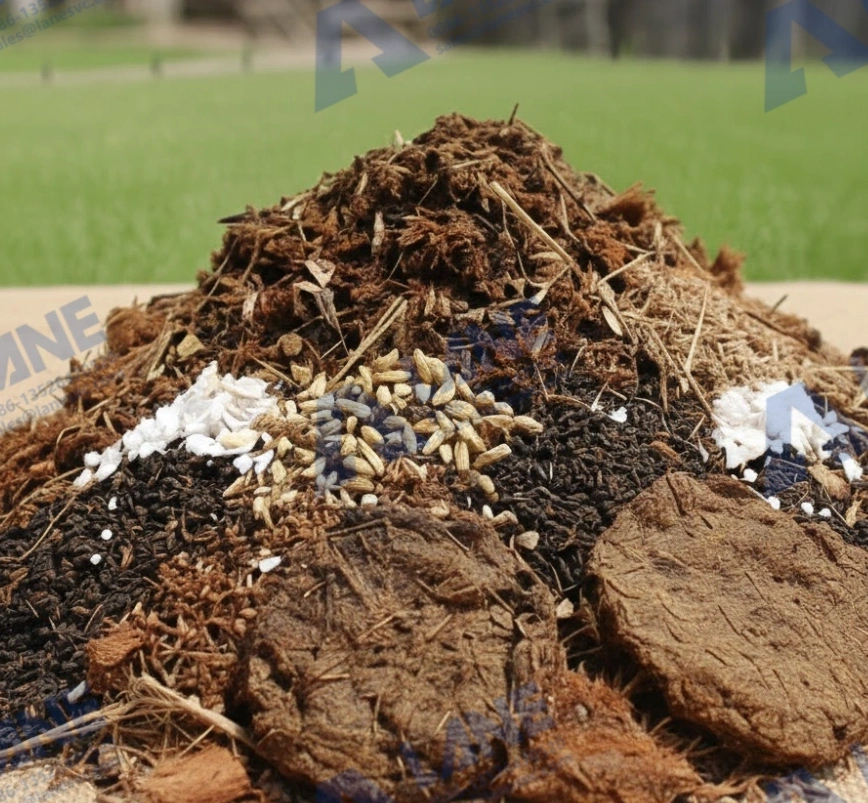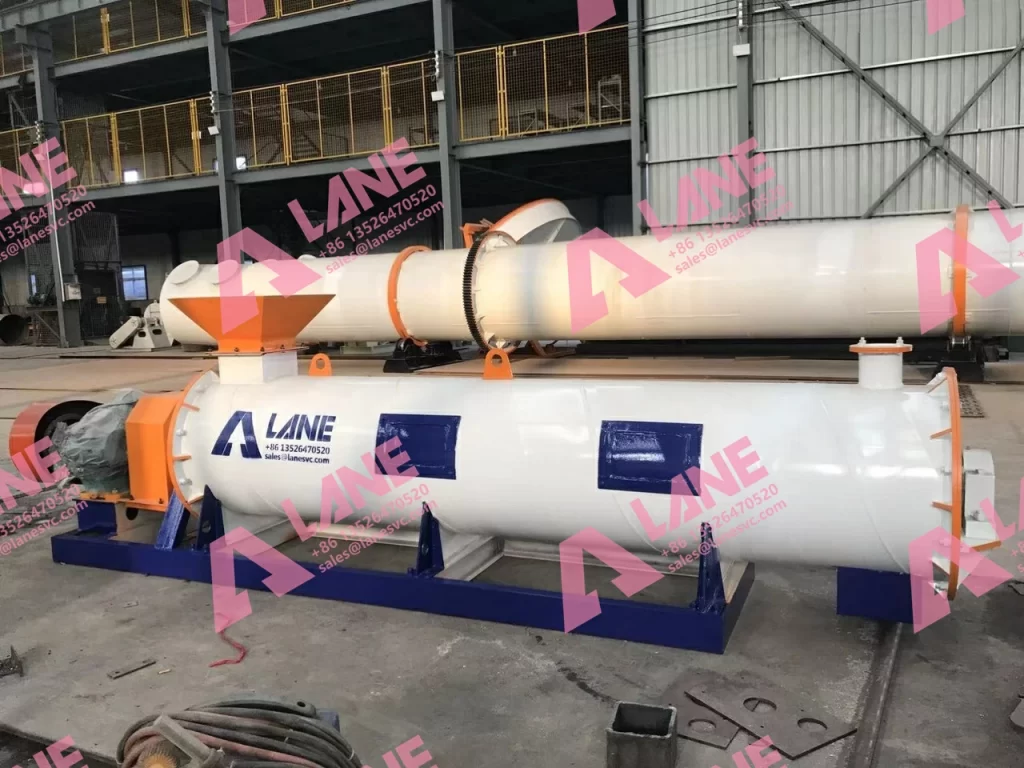In modern agriculture, eco-friendly organic fertilizer plant solutions are increasingly seen as the backbone of sustainable farming. Farmers, agribusinesses, and governments are actively moving away from dependency on chemical fertilizers to embrace organic alternatives that improve soil health, reduce pollution, and ensure long-term productivity. With advanced technologies and innovative equipment, companies like LANE deliver turnkey solutions that empower farms and industries to build environmentally responsible fertilizer plants.
Why Choose Eco-friendly Organic Fertilizer Plant Solutions?
The demand for organic fertilizers is rising as soils continue to degrade under chemical-intensive agriculture. Eco-friendly organic fertilizer plant solutions not only restore soil vitality but also recycle agricultural and industrial waste into valuable products. Unlike chemical plants that depend on non-renewable inputs, these systems close the loop between farming, waste management, and food production.
Environmental Benefits: Reduced carbon emissions, improved biodiversity, and lower risk of water pollution.
Economic Benefits: Utilization of low-cost raw materials and waste streams for high-value fertilizer.
Agronomic Benefits: Long-term soil structure improvement and sustainable crop yields.
Raw Materials for Eco-friendly Organic Fertilizer Plant Solutions
Different types of raw materials can be transformed into high-quality organic fertilizers through eco-friendly organic fertilizer plant solutions. Below is a table summarizing the most common feedstocks:
| Raw Material | Source | Nutrient Contribution | Sustainability Value |
| Animal Manure (cow, sheep, poultry) | Livestock farms | High nitrogen, phosphorus, potassium | Recycling livestock waste into useful products |
| Crop Residues (straw, husks, stalks) | Agriculture fields | Organic carbon, trace minerals | Reduces open burning, improves soil carbon |
| Food & Agro-Industrial Waste | Fruit/vegetable processing, sugar mills | Organic matter, micronutrients | Diverts waste from landfills |
| Green Waste (leaves, grass) | Municipal or on-farm waste | Balanced organic matter | Reduces city waste, promotes circular economy |
| Seaweed, Fish Waste | Coastal industries, aquaculture | Natural growth hormones, amino acids | Boosts plant resilience, reduces ocean waste |
This diversity of feedstocks makes organic fertilizer production both flexible and highly adaptable to local conditions.

Key Equipment in Eco-friendly Organic Fertilizer Plant Solutions
The journey from raw materials to finished organic fertilizer is a carefully designed process that ensures both efficiency and sustainability. In eco-friendly organic fertilizer plant solutions, each stage is supported by specialized equipment to maximize nutrient retention and guarantee product quality.
(1) Raw Material Collection & Pre-treatment
The process begins with gathering raw materials such as animal manure, crop residues, or food processing waste. These materials often arrive with varying levels of moisture and particle size, so a vertical shaft crusher is used to break down larger chunks, while a mixer ensures even blending. This pre-treatment step is critical for establishing a balanced carbon-to-nitrogen ratio, which sets the foundation for successful composting.
(2) Composting & Fermentation
Once prepared, the materials are transferred to composting units. Depending on plant scale, farmers may use a crawler type compost turner, a groove type compost turner, or a vertical fermentation tank. These machines accelerate microbial activity by introducing oxygen, maintaining optimal temperature, and controlling moisture. In a well-managed system, what once was smelly waste is transformed within weeks into a nutrient-rich compost base.
(3) Secondary Processing: Crushing & Fine Mixing
After fermentation, the semi-finished compost is not yet ready for use. It usually requires further refinement. A crusher removes clumps, and another round of mixing ensures uniform nutrient distribution. At this stage, additional organic or mineral additives can be introduced to meet specific crop nutrient requirements.
(4) Granulation
To improve storage, handling, and application efficiency, the compost is shaped into granules using a stirring pin granulator or rotary drum granulator. This step gives the fertilizer a consistent size and density, making it easier to spread evenly across fields.

(5) Polishing & Drying
The granules often pass through a polishing machine to achieve a smooth, round shape that enhances their market appeal. Afterward, a rotary dryer reduces excess moisture, followed by a cooler that stabilizes the granules for storage and transport.
(6) Final Packaging
The finished product is directed to the packing machine, where it is automatically weighed, bagged, and sealed. The bags are typically prepared in standardized sizes for commercial sale or direct farm use. This stage ensures that the fertilizers are market-ready, safe to transport, and convenient for farmers to handle.

Comparison with Chemical Fertilizer Plants
| Aspect | Eco-friendly Organic Fertilizer Plants | Chemical Fertilizer Plants |
| Raw Materials | Renewable (manure, crop residues, food waste) | Non-renewable (synthetic chemicals, mined minerals) |
| Environmental Impact | Reduces emissions, improves soil health | High emissions, soil degradation |
| Production Scale | Scalable (small to large plants) | Requires large centralized factories |
| Soil Fertility | Improves structure, long-term fertility | Quick boost, but soil exhaustion over time |
| Market Trend | Growing global demand, supported by policy | Facing regulatory restrictions |
This comparison shows why eco-friendly organic fertilizer plant solutions are not just an alternative, but the future of agriculture.
LANE’s Expertise in Eco-friendly Solutions
LANE provides end-to-end project support – from plant design, raw material assessment, equipment manufacturing, installation, to after-sales service. Whether it’s a small cooperative unit or an industrial-scale production line, LANE ensures:
Customized equipment layout based on raw material type.
Advanced automation for reduced labor.
Energy-efficient designs lowering operating costs.
Proven experience in international markets.
Building a sustainable future for agriculture requires more than just incremental improvements—it calls for a systematic transformation of how we recycle resources and return nutrients to the soil. Eco-friendly organic fertilizer plant solutions provide that transformation by turning agricultural and food waste into high-value fertilizer products, reducing dependency on chemical inputs while improving soil health for generations to come.
At LANE, we don’t just deliver equipment—we provide end-to-end project solutions that combine technical expertise, tailored engineering, and reliable after-sales service. Whether it’s selecting the right compost turner, designing a granulation system, or integrating a fully automated packaging line, our team ensures every plant is optimized for both performance and sustainability.
As global agriculture faces mounting pressure to produce more with fewer resources, eco-friendly organic fertilizer plant solutions are no longer optional; they are essential. Partnering with the right technology provider means farmers and enterprises can move beyond waste management and toward a truly circular agricultural economy. With LANE’s experience and commitment, the path to sustainable fertilizer production has never been clearer.
For more details, please feel free to contact us.
Henan Lane Heavy Industry Machinery Technology Co., Ltd.
Email: sales@lanesvc.com
Contact number: +86 13526470520
Whatsapp: +86 13526470520